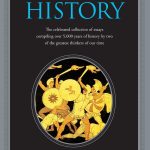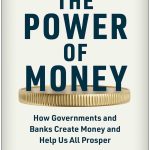
Customers say
Customers find this financial history book engaging and readable, with an academic and historical richness that provides interesting insights. The book offers a brief tour of financial history, with one customer highlighting its comprehensive coverage of monetary and financial systems throughout time. They appreciate the fascinating narrative and story-telling approach, and find it accurate and well-researched. The pacing receives mixed reviews, with some finding it superficial.
Make It Yours – See Your Price On Amazon!
Your Sales Price $21.00 - $9.99
A quick rundown of this product’s key features:
A richly original look at the origins of money and how it makes the world go around
Niall Ferguson follows the money to tell the human story behind the evolution of our financial system, from its genesis in ancient Mesopotamia to the latest upheavals on what he calls Planet Finance. What’s more, Ferguson reveals financial history as the essential backstory behind all history, arguing that the evolution of credit and debt was as important as any technological innovation in the rise of civilization. As Ferguson traces the crisis from ancient Egypt’s Memphis to today’s Chongqing, he offers bold and compelling new insights into the rise? and fall of not just money but Western power as well.
Our Top Reviews
Reviewer: Marion
Rating: 5.0 out of 5 stars
Title: Entertaining historical narrative
Review: The genius of history Professor Ferguson, of Harvard University and the Hoover Institute, is widely acclaimed. His ability to summarize the broad sweep of history in using easy language for non-academics is on display in many of his books.Note: this book is not without its critics, particularly among Economists, who can be a cantankerous lot with a wide variety of political viewpoints. The book succeeds as a historical narrative and does not lay claim to technical economic exposition.Ferguson has the ability to open up the broad sweep of history with easy terms and lots of facts to portray a clear picture. The pertinent statistics that abound in his narrative are particularly helpful in clarifying the history and impact of money. Beginning with money lenders in ancient Mesopotamia (a beginning form of credit) the author shows us how the ascent of money has been essential to the ascent of mankind.The ascent of money is described as an evolutionary process with development throughout history of new mediums of exchange. Capital mutations bring about the creation of new markets and new products, which are created by a system under capitalism, which provides growth in the monetary system to accommodate economic growth and expansion of the population. One example of the ongoing change in the world of business and technology that is cited: of the 100 largest private companies in the year 1919 only 29 remained in the top 100 by the year 2000.The author shows us the development of new tools in the supply of money from barter systems to using commodities as money, to the first coins in the Mediterranean region (600BC), to the Inca Empire which had no money (presumably applauded by Karl Marx but not John Lennon), to precious metals backed by coinage in the era of Pizarro, to the introduction of banking systems with the Medici Empire in 15th Century Florence, to the introduction of stocks, bonds, insurance, and international money markets, and to the subprime mortgage debacle.Within the narrative we get the broad sweep of many of the greatest economists including Adam Smith, Friedrich von Hayek, Ludvig von Mises, Joseph Schumpeter, Karl Marx, Frank Knight, JM Keynes, and Milton Friedman.The Author asserts that the basis of money is TRUST. National currencies therefore float in value compared to other currencies depending upon international confidence and expected stability. Credit also is dependent upon the commitment that loans will be repaid. According to the author with other things being equal, more “money” only increases prices and does not enrich a nation.One theory espoused by a number of individuals in popular discourse is the world would be better off if there were no money! The author does not refute this argument directly, perhaps assuming that his readers are schooled in basic economics. Economic history teaches that in a culture where there is no money, a monetary system is created in order that goods and services can be exchanged between individuals. Only if no item in the culture has any value would there be no need for money. If anything, perhaps the life of an individual, does have value then there would arise the desire for a monetary system in order to protect or exchange the items of value between individuals. Ferguson does mention the “no money” topic regarding both Karl Marx and the Inca civilization. Little is known about the Inca Empire except that its time of prosperity was very short. Marxism seemed to flourish during the first half of the twentieth century but seemed to collapse by the end of the century, with many formerly Communist or socialist nations moving back toward widespread property rights and capitalism.
Reviewer: The Garden Interior
Rating: 4.0 out of 5 stars
Title: Where Does Money Come From?
Review: Where does money come from? Like many of the fundamental building blocks of civilization – agriculture, writing, numbers, commerce – it turns out that it comes from Mesopotamia. Around 5,000 years ago, transactions were recorded there on clay tablets, which were the earliest forms of money known to human civilization. This according to Niall Ferguson, the justly celebrated, English-educated Harvard history professor.The world’s first coins were minted in the Greek empire in what is now Turkey, about 2,600 years ago. As it happens, as I write this, I have a 2,300-year-old Greek silver coin that I wear around my neck. It has a bee on the obverse and a deer on the reverse. It was minted at Ephesus in Anatolia 300 years before the Apostle John lived there and wrote his world-changing Gospel. Money has ancient roots and its rise is inextricably intertwined with the rise of human civilization, and Prof. Ferguson explores the entire grand story in this compelling, engaging and superbly readable history.Ferguson has a remarkable and rare ability to take a difficult and even abstruse subject like the history of money and make it fascinatingly intelligible, even entertaining. This impressive book began life as a television series for Channel 4 in the UK and on PBS in the U.S. It draws to a close as the appalling Great Recession of 2008 is getting under way in earnest, a coincidence that underscores why understanding money and how it flows through the tissues and sinews of the global economy, is time well spent and of the first importance.Ferguson begins with the earliest forms of money and the origins of banking, then moves on to bonds and the creation of debt structures. After that comes a fascinating chapter on bubbles and on the rise of insurance to ameliorate risk. These are followed by chapters on real estate and the massive modern globalization trends that have created the bipolar financial world that he calls Chimerica, organized around the enormous economies of China and the US. It sounds rather dry to list the chapter topics this way, but each is told in fascinating detail and with a lively anecdotal wit that keep the subject from getting anywhere near the tedious mark. One criticism: Ferguson’s afterword should have been an opportunity for a brilliant look-back on the financial crisis of 2008, but instead it is a rather rambling discourse on whether markets are truly evolutionary. It lacks the acuity and clarity of the rest of the book and would better have been left out, I thought. But this is a small flaw in an otherwise very impressive and perfectly comprehensive summary of where money comes from and why understanding its ascent is important to each one of us.
Reviewer: John D. Cofield
Rating: 5.0 out of 5 stars
Title: Timely And Fascinating
Review: Never has it been more important to understand the history of finance than nowadays, and fortunately we have this clearly written and fascinating but scholarly work by Niall Ferguson. In common with most of the world, it seems, I’ve been confused and frightened by the events of the last few months. I understood some of what was going on, but little about the underlying causes and histories. All I knew was that my house and my portfolio are now worth substantially less than they had been.Niall Ferguson does a good job of clearing up much of my confusion. He’s a lively writer with a keen eye for an entertaining and enlightening anecdote. In The Ascent of Money he explains the background history of stock exchanges, the bond market, and the all too important mortgage industry. Those who have read other works by Ferguson know some of his underlying themes (such as the positive effects of European imperialism on the exploited areas) carry over from one book to another, and The Ascent of Money is no exception. But such counterintuitive ideas are intriguing, and need not be accepted by his readers if they find them wanting.I can’t say I now understand the current financial crisis completely, but after reading The Ascent of Money I do have a better idea of some of the underlying causes and more realistic (i.e. less optimistic) expectations for how and when we might start to see some improvement.
Reviewer: Davide Aresu
Rating: 5.0 out of 5 stars
Title:
Review: Really good book, though it could be a little shorter
Reviewer: Tushaar Talwar
Rating: 5.0 out of 5 stars
Title:
Review: The book deals with financial history in a rather interesting yet understandable manner. It is slightly basic if you’re well versed with financial instruments and understand financial news well. However, there’s lots even the initiated will learn from this book.Delivery was fast, binding is great, except the part with the photographs, it seems a little fragile there.
Reviewer: 田中 章博
Rating: 5.0 out of 5 stars
Title:
Review: 予定通り到着し、商品もきれいです。他のChromatic Harmonica Playerによる教則本を2.3もっていますが、今回のものが最もよいと思いました。
Reviewer: khaled ibrahim
Rating: 5.0 out of 5 stars
Title:
Review: Very good dopy
Reviewer: Cliente Kindle
Rating: 5.0 out of 5 stars
Title:
Review: Nada mais imperfeito e instável quanto a moeda; o humano, também.Niall Ferguson, sempre extremamente esclarecedor, nos ilustra um quadro de que a moeda veio para ficar, e nada mais natural do que choques financeiros.
Price effective as of Apr 22, 2025 21:13:30 UTC
As an Amazon Associate Dealors may receive a commission for purchases made through these links.









